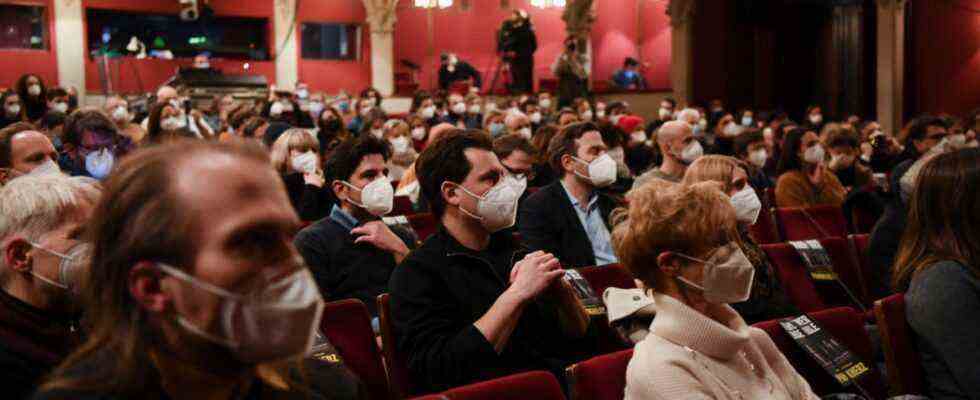In the first year of the pandemic, actors, artistic directors and museum directors had to make it clear to politicians: They do something different than operators of casinos or brothels, because culture has a special social significance. At some point it was said, it’s actually true, that Covid measures shouldn’t be any stricter in museums than in department stores, and no stricter in theaters than in restaurants. There was a pragmatic logic to this – even if that didn’t take into account the studies that showed the opera house to be safer than the supermarket and anyway than the pub.
And now, after two years of Corona? Can you walk into cafés with 2G in Bavaria without a test or booster, while proof is needed for the monumental halls in Munich’s Haus der Kunst. In the Philharmonie, the audience sits breezy because only every fourth seat is taken, and of course proof is required again; We’re not in the hardware store here. Now the state government is promising at least 50 percent occupancy for cultural events.
Behind these priorities are values
The concern of politicians about contagion is justified. It’s just that it’s not given to the same extent in restaurants, not even when the now retrained singer sings an aria while serving. Bavaria proudly calls itself a cultural state – but when push comes to shove, the beer culture is saved first.
Values are behind such priorities. Not only in the Free State, but throughout Germany, culture is a luxury that a rich country can afford. Just like potentates elsewhere run a private zoo because they don’t know what to do with their money. First of all, culture is not dispensable, but one of the foundations for communicating with one another in a democracy about one’s own ideals and the meaning of life (and having fun at the same time). Second, Germany may be the world export champion; but it is also a nation that not only spends money on culture, but above all earns it with it, mostly in the country itself.
The world of work has changed, there is more than trade and industry
Before the pandemic, the Bavarian cultural and creative industries had a higher share of gross value added at 3.7 percent than mechanical engineering, not to mention gastronomy, which accounted for one percentage point. In 2018, 4.3 percent of all employees in the federal state worked in the cultural and creative sectors, almost half of them women. Numerous companies are newly founded, which also stimulate other branches of industry with their ideas and services. Anyone who always considers everything else, gastronomy, trade and industry, to be economically important only shows that he or she has remained stuck in the working world of the 20th century. Culture may not always be a haven for permanent employment contracts, but it is a playing field for innovative entrepreneurship. No state or federal government can afford to underestimate this in the long term.
Anyone who puts cultural institutions in a worse position than other areas of life during the pandemic also ignores all societal, economic and social counter-arguments. And only treats theaters and museums particularly severely because they are so easy to govern.

